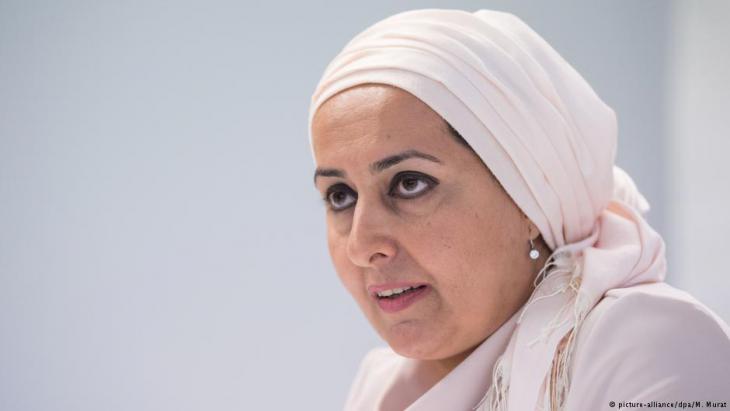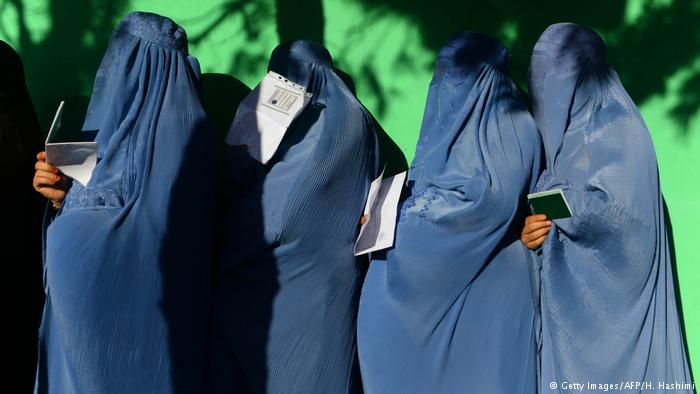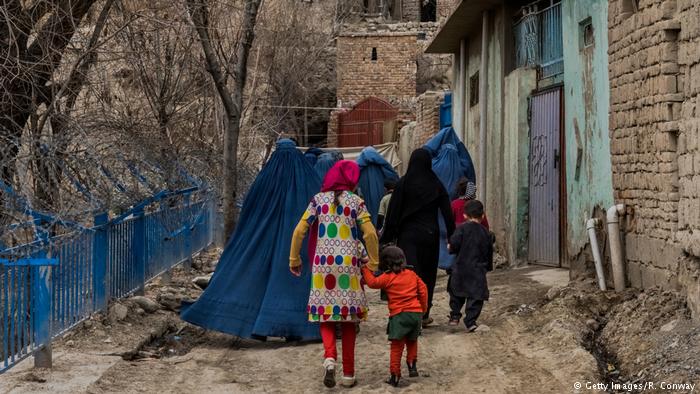#WirSindMehr: “Hostility is the failure of identity”

Insults, violence, attacks on refugee centres. Is this the answer of an enlightened, democratic society, shaped by human and humane values? Fereshta Ludin, high school teacher and former refugee, calls us all to account.
I am no longer a refugee or asylum seeker. Yet I cannot erase this phase of my life from my past. It is why I am here, part of my existence.
Back in the nineteen eighties, the U.S.S.R. transformed Afghanistan into the largest minefield in the world in the 1980s. Ever since the withdrawal of the Soviets from Afghanistan, the country has been plagued by civil war. Today Afghanistan finds itself in an armed conflict of interests, one from which the country seems unable to extricate itself. Itʹs a place that issues no guarantees for a safe and peaceful life.
Hoping for humanity and protection
As a result many people are making the trek to Europe, homeless, uprooted and seeking help. From Afghanistan, from Syria, from all over the world. Wars and natural disasters are often the cause. And what do they hope for? A chance to live in dignity. Humanity and protection.
What do we give them? How do we respond to their helplessness? How do we react to them? What do our facial expressions and gestures reveal about us? It is the only language that refugees can understand when they arrive here. In what language and in what tone do we talk to them? Do we know their history and do we know what they have been through?
What impact does their suffering have on their health, their mental and physical well-being? Do we know what sacrifices they had to make to get here? Do we know whether they will ever be able to return, or whether they will ever gain a foothold here?
Can we really know their suffering?
I know refugees who spent ten years living in shelters before their right to asylum was granted. Do we know and feel what these people experience and feel every day?
Some offer help, give donations and make sacrifices to enable these people to lead a dignified life here. Others react with distaste, keep their distance, ignore the situation or engage in acts of violence. Alone or in groups. Yet more and more publicly.
Wherever they come from, the need and misery of our fellow human beings, who have nowhere to call home, nowhere to feel secure, neither here nor elsewhere, is part of our reality in Europe. Yet we push the fate of people who have lost their loved ones, their houses, their memories, their possessions and even their dignity, to the back of our minds.
Their search is for a new place, a new environment, a new society and values that will restore their dignity. Do we empathise with those in need, those seeking protection, when they face condescending comments from us and from politicians? How must they feel when marches are organised against their right to stay? Do we share their trauma when they witness the burning of hundreds of refugee shelters every year, organised attacks and spontaneous acts of violence?
Is this the answer of an enlightened, democratic society, shaped by human and humane values? We can do better. Humanity begins with empathy. Humanity is the heart of identity. Hostility its failure.
Author: Fereshta Ludin






